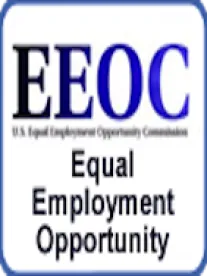The United States Court of Appeals for the Seventh Circuit (Chicago) broke new ground last week when, in disagreement with rulings from several other circuits, it held that Title VII’s requirement for EEOC conciliation as a precursor to bringing suit for discrimination may not be as big a hurdle to litigation as the Civil Rights Act would make it appear. “[T]he statutory directive to the EEOC to negotiate first and sue later does not implicitly create a defense for employers who have allegedly violated Title VII,” the court held. EEOC v. Mach Mining LLC (7th Cir. December 20, 2013).
Statutory Background
Conciliation is an important event in the life of an Equal Employment Opportunity Commission matter, occurring in those cases in which the EEOC finds reasonable cause to believe that an employer has violated the statutes it enforces. Title VII of the Civil Rights Act of 1964 contains this directive:
If the Commission determines after such investigation that there is reasonable cause to believe the charge is true, the Commission shall endeavor to eliminate any such alleged unlawful employment practice by informal methods of conference, conciliation and persuasion. 42 U.S.C. § 2000e-5(b).
The EEOC may only file a lawsuit if “the Commission has been unable to secure from the respondent a conciliation agreement acceptable to the Commission.” 42 U.S.C. § 2000e-5(f)(1).
Case History
In September 2010, the EEOC found reasonable cause to believe that Mach Mining had engaged in discrimination against a class of female applicants and invited Mach Mining to engage in conciliation efforts. Approximately a year later, in mid-September 2011, the EEOC notified Mach Mining that conciliation efforts required by the law had occurred but been unsuccessful. Shortly thereafter, the EEOC filed a lawsuit against Mach Mining in the United States District Court for the Southern District of Illinois. In its answer to the EEOC’s complaint, Mach Mining asserted as an affirmative defense that the EEOC had failed to conciliate in good faith the allegations raised in the EEOC’s complaint.
The EEOC filed an early motion for summary judgment arguing that the affirmative defense of failure to conciliate is not permitted as a matter of law. The district court denied the EEOC’s motion but certified the matter for interlocutory appeal and the Seventh Circuit granted the EEOC’s request to appeal.
Seventh Circuit Opinion
A three judge panel agreed with the EEOC, rejecting the notion that an employer can raise failure to conciliate as an affirmative defense. Judge Hamilton found in favor of the EEOC based on (1) the language of Title VII, (2) the lack of meaningful standards to apply in determining any deficiency in the EEOC’s conciliation efforts, and (3) concern that judicial review would undermine enforcement of Title VII. Because the panel’s proposed ruling would create a split with other courts of appeals that had ruled in favor of the affirmative defense, before issuance of the Mach Mining ruling, the draft opinion was circulated to all regular judges of the Seventh Circuit. No judge indicated an objection to the opinion. The appeals court’s ruling then was issued.
Statutory Limitation on EEOC’s Obligations to Conciliate
According to Judge Hamilton, Title VII requires the EEOC only to try to conciliate, as evidenced by Title VII’s requirement that the EEOC “endeavor to eliminate” discrimination. On what terms a matter is to be conciliated is to be decided by the EEOC alone because the conciliation agreement must be “acceptable to the [EEOC].” Thus, conciliation is to be “entrusted solely to the EEOC’s expert judgment.” Judge Hamilton specifically noted that holding the EEOC to a standard of “good faith” in conciliation was not required by Title VII.
Limitations on Utilizing Information from Conciliation
Judge Hamilton found that Title VII not only gives the EEOC the ability to judge its own conciliation efforts, but also restricts the ability of an employer to bring details of the conciliation process to the attention of a court in the defense of an EEOC lawsuit. The opinion quoted the provisions of Title VII regarding the use of conciliation communication:
Nothing said or done during and as part of [conciliation] may be made public by the Commission, its officers or employees, or used as evidence in a subsequent proceeding without the written consent of the persons concerned.
42 U.S.C. § 2000e-5(b). Although Judge Hamilton acknowledged that information about the EEOC’s conduct had been reviewed by courts in other cases in the past, and the EEOC itself had submitted evidence about conciliation conduct, those cases were based on “mistaken interpretations of the law.”
Affirmative Defense Undermines Title VII
The Seventh Circuit reasoned that the conciliation affirmative defense serves to “protract and complicate Title VII litigation, and with little or no offsetting benefit.” According to the opinion, it creates potential incentives for employers that are contrary to Title VII’s purpose of voluntary compliance and enables “strategic evasion on the part of employers.”
Rejecting Mach Mining’s Policy Argument
Judge Hamilton also addressed Mach Mining’s argument that “judges must police the EEOC, lest it either abandon conciliation altogether or misuse it by advancing unrealistic and even extortionate settlement demands.” “Neither scenario is plausible,” wrote Hamilton. Instead, the EEOC is constrained by the limits of its budget and personnel, as demonstrated by the fact that the EEOC only files lawsuits in a fraction of the matters in which it fails conciliation.
Other Means of Scrutiny of EEOC
Even without judicial scrutiny, there are other avenues for checking the EEOC’s practices. The opinion noted that Congress can exert its influence through oversight hearings, setting the EEOC’s budget and amending the law. Additionally, the EEOC’s commissioners must be appointed by the President and confirmed by the Senate.
Looking Forward
In its press release regarding the Mach Mining ruling, the EEOC pronounced the ruling as a “landmark” and “in the national interest.” According to the Seventh Circuit, the Second, Fourth, Fifth, Sixth, Eighth and Tenth Circuits have accepted the failure to conciliate affirmative defense. However, the Seventh Circuit observed that a number of these rulings simply assumed the validity of the affirmative defense and few have addressed the defense directly.
The EEOC will probably pursue its winning argument from Mach Mining in other circuits, at least those that have not yet specifically determined the issue. A split in the circuit courts, however, increases the likelihood of Supreme Court review. It should be noted that Title VII’s conciliation provisions are also utilized in Americans with Disabilities Act and Genetic Information Nondiscrimination Act matters. The Age Discrimination in Employment Act and Equal Pay Act contain separate conciliation provisions.




 />i
/>i
